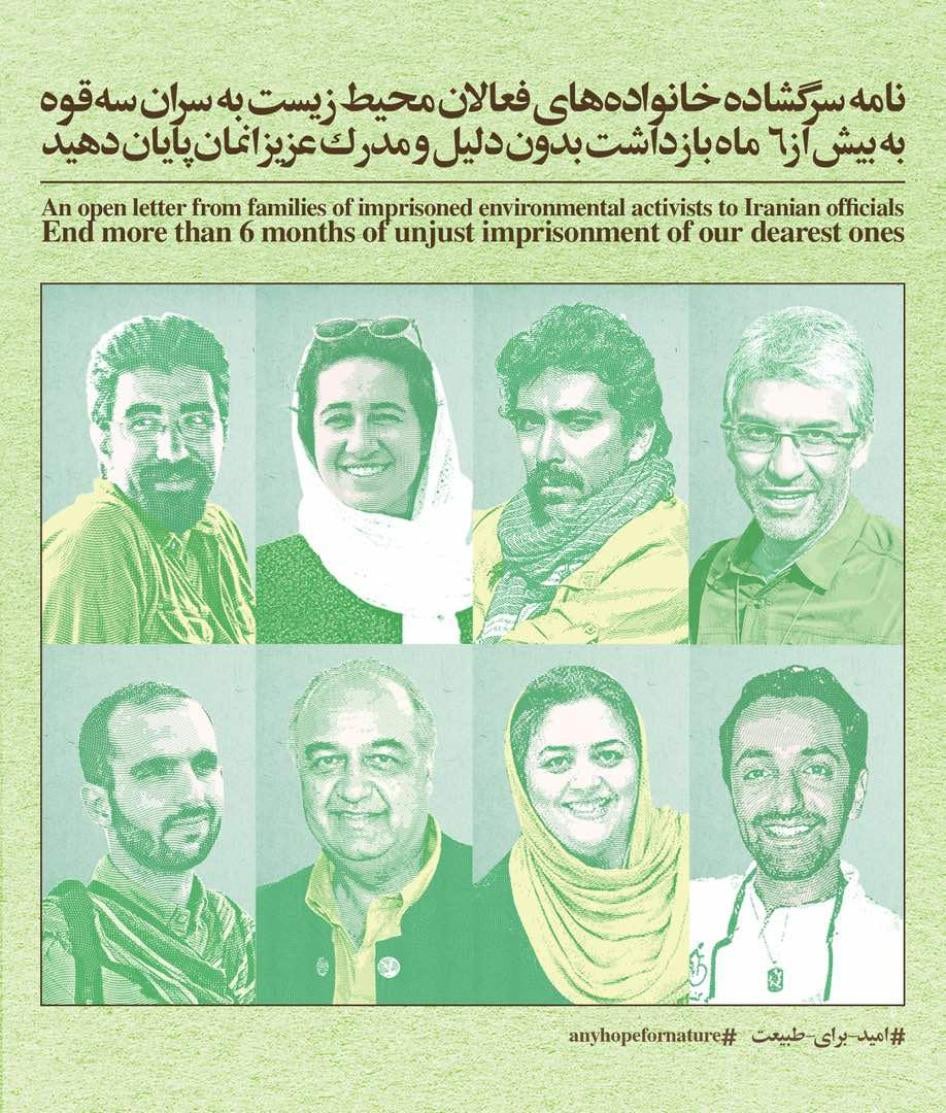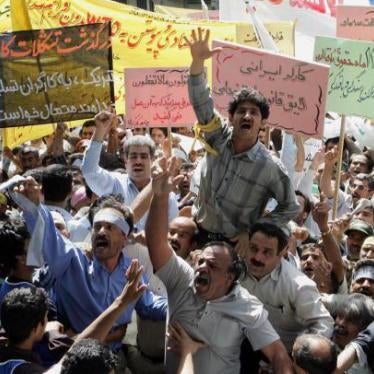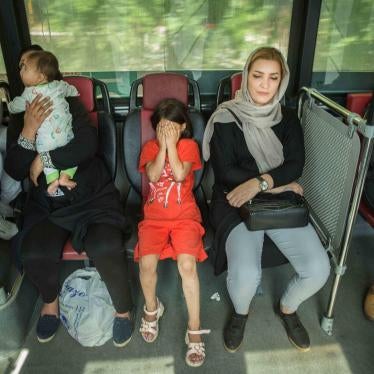(Beirut) – At least two environmental experts detained in Iran since January 2018 have likely embarked on a hunger strike to protest their continued detention after many months in legal limbo, Human Rights Watch said today. Authorities should ensure their adequate access to medical treatment.
They are among eight environmentalist experts detained for over 18 months without being provided with the evidence concerning their alleged crimes and with serious due process violations. Given those circumstances, the authorities should immediately release all eight.
“Members of the Persian Wildlife Heritage Foundation have languished behind bars for over 550 days while Iranian authorities have blatantly failed to provide a shred of evidence about their alleged crime,” said Michael Page, deputy Middle East director at Human Rights Watch. “The authorities should take the long overdue step of releasing these defenders of Iran’s endangered wildlife and end this injustice against them.”
A source who requested anonymity informed Human Rights Watch that Niloufar Bayani and Sepideh Kashani intended to begin a hunger strike on August 3, 2019. Two other environmentalists arrested with them have most likely begun a hunger strike as well, the source said. Human Rights Watch is not aware of any contacts the detainees have had with family members since August 3.
Authorities from Iran’s Islamic Revolutionary Guard Corps (IRGC) Intelligence Organization detained the two, along with Houman Jokar, Sam Rajabi, Taher Ghadirian, Morad Tahbaz, Amirhossein Khaleghi, and Abdolreza Kouhpayeh on accusations of espionage. All are members of a local environmental group, the Persian Wildlife Heritage Foundation (PWHF). The authorities have provided no evidence to them or their lawyers concerning their alleged crimes.
The environmentalists on hunger strike are demanding that authorities end their legal limbo and either release them on bail until a verdict is issued against them or transfer them to the public ward of Evin prison, the source said. They are in ward 2-Alef of Evin prison, which is under the supervision. of the IRGC’s Intelligence Organization.
Their trial in Branch 15 of Tehran’s revolutionary court was halted before the Iranian new year in March, then resumed at the beginning of August. The court reportedly did not allow lawyers to review the evidence before the trial opened on January 30. Judge Abdolghassem Salavati of Branch 15 also restricted the defendants’ choices of lawyers to a list approved by the judiciary. Bayani had interrupted an earlier trial session, in February, saying that the defendants had been under psychological torture and were coerced into making false confessions.
On February 10, 2018, a few weeks after their arrests, family members of Kavous Seyed Emami, a Canadian-Iranian professor and environmentalist arrested with the other members of the group, reported that he had died in detention under suspicious circumstances. Iranian authorities claimed that he committed suicide, but they have not conducted an impartial investigation into his death and have placed a travel ban on his wife, Maryam Mombeini.
Several senior Iranian government officials have said that they did not find any evidence to suggest that the detained activists are spies. On May 22, 2018, ISNA News Agency reported that Issa Kalantari, the head of Iran’s Environmental Institution, said during a speech at a bio-diversity conference that the government had formed a committee consisting of the ministers of intelligence, interior, and justice and the president’s legal deputy, and that they had concluded there was no evidence to suggest those detained are spies. Kalantari added that the committee said the environmentalists should be released.
On February 3, Mahmoud Sadeghi, a member of parliament from Tehran, tweeted that according to the information he has received, the National Security Council headed by President Hassan Rouhani also did not deem their activities of the detained conservation activists to be spying.
On October 24, 2018, Abbas Jafari Dolatabadi, the Tehran prosecutor, said that the prosecutor’s office had elevated the charges against four of the detainees to “sowing corruption on earth,” which includes the risk of the death penalty. The prosecutor claimed that the activists were “seeking proximity to military sites with the cover of environmental projects and obtaining military information from them.” Bayani, Tahbaz, Jokar, and Ghadirian are believed to face the capital charges. On January 30, the Islamic Republic News Agency reported that three others are charged with spying and one person is charged with assembly and collusion against national security.
Article 48 of Iran’s 2014 criminal procedure law says that detainees charged with various offenses, including national or international security crimes, political, and media crimes, must select their lawyer from a pre-approved pool selected by Iran’s judiciary during the investigation. The list published in June 2018 of lawyers allowed to represent people charged with national security crimes in Tehran province did not include any women or human rights lawyers.
Iran has a dismal record of providing necessary medical care and respecting the due process of detainees, Human Rights Watch said. In one of the latest incidents, on December 13, authorities informed the family of Vahid Sayadi Nasiri, a dissident, that he died in prison. His family said he had been he was serving time for charges that included “insulting the supreme leader” and that he had gone on a hunger strike to protest his condition.









